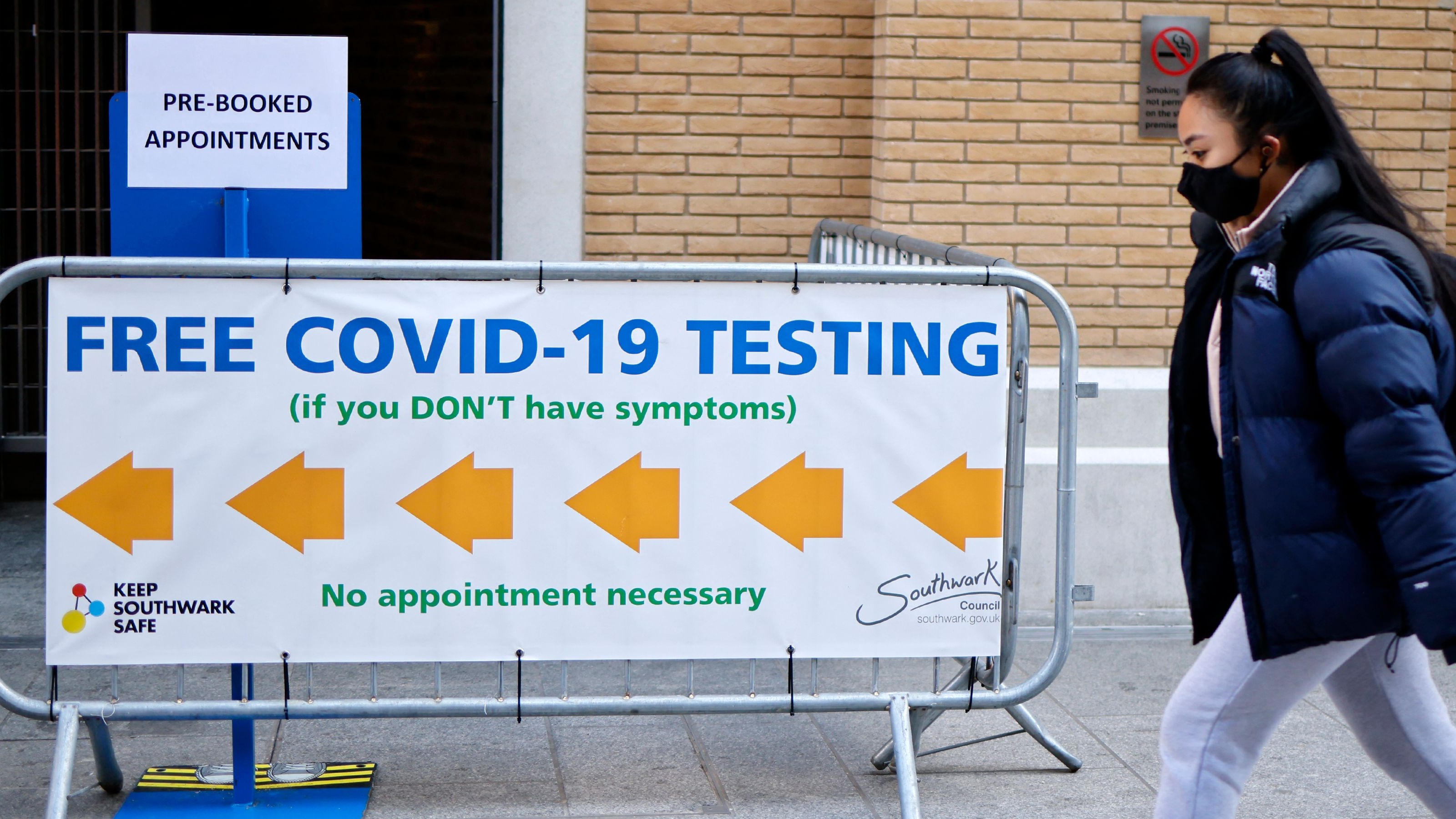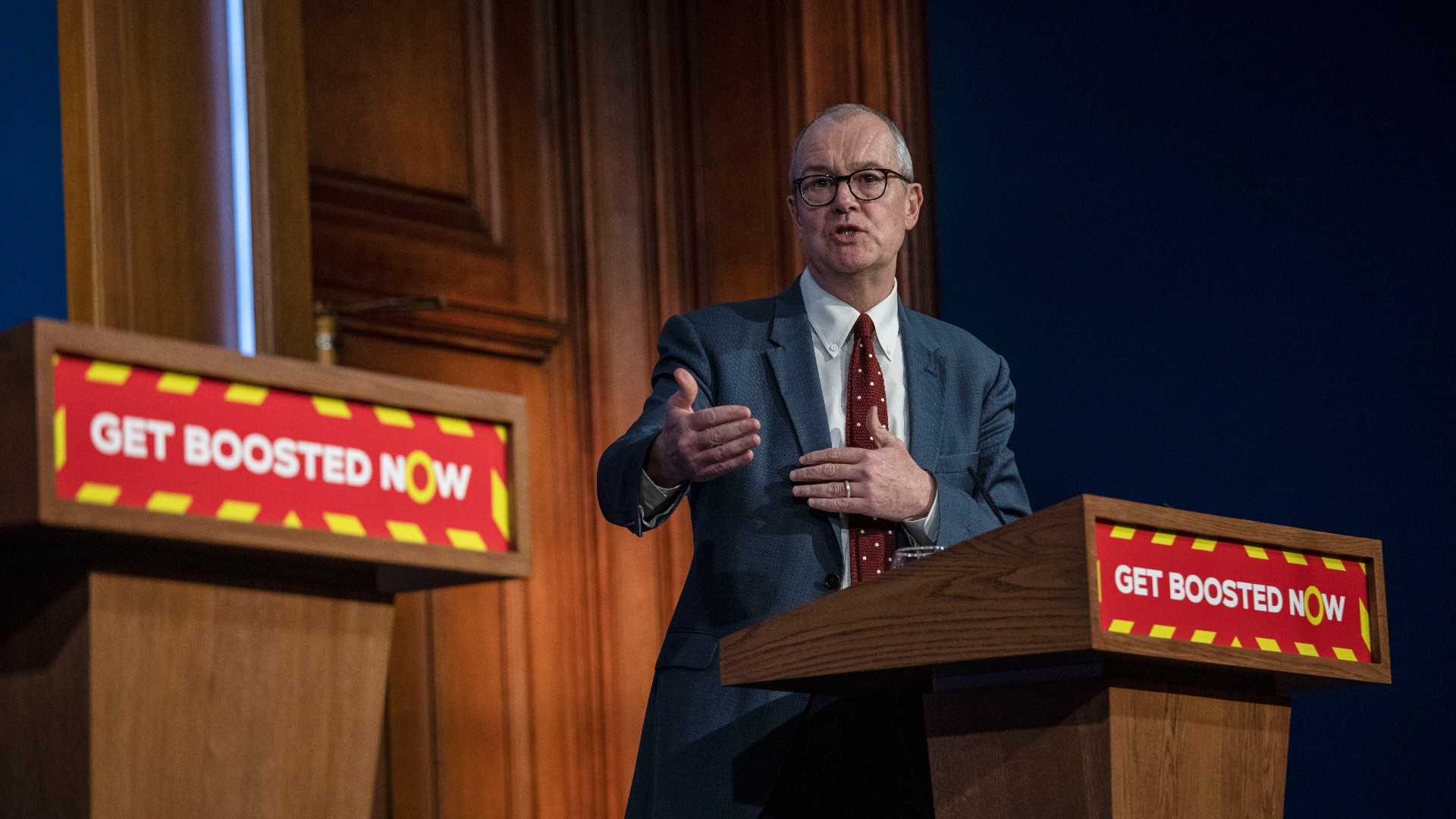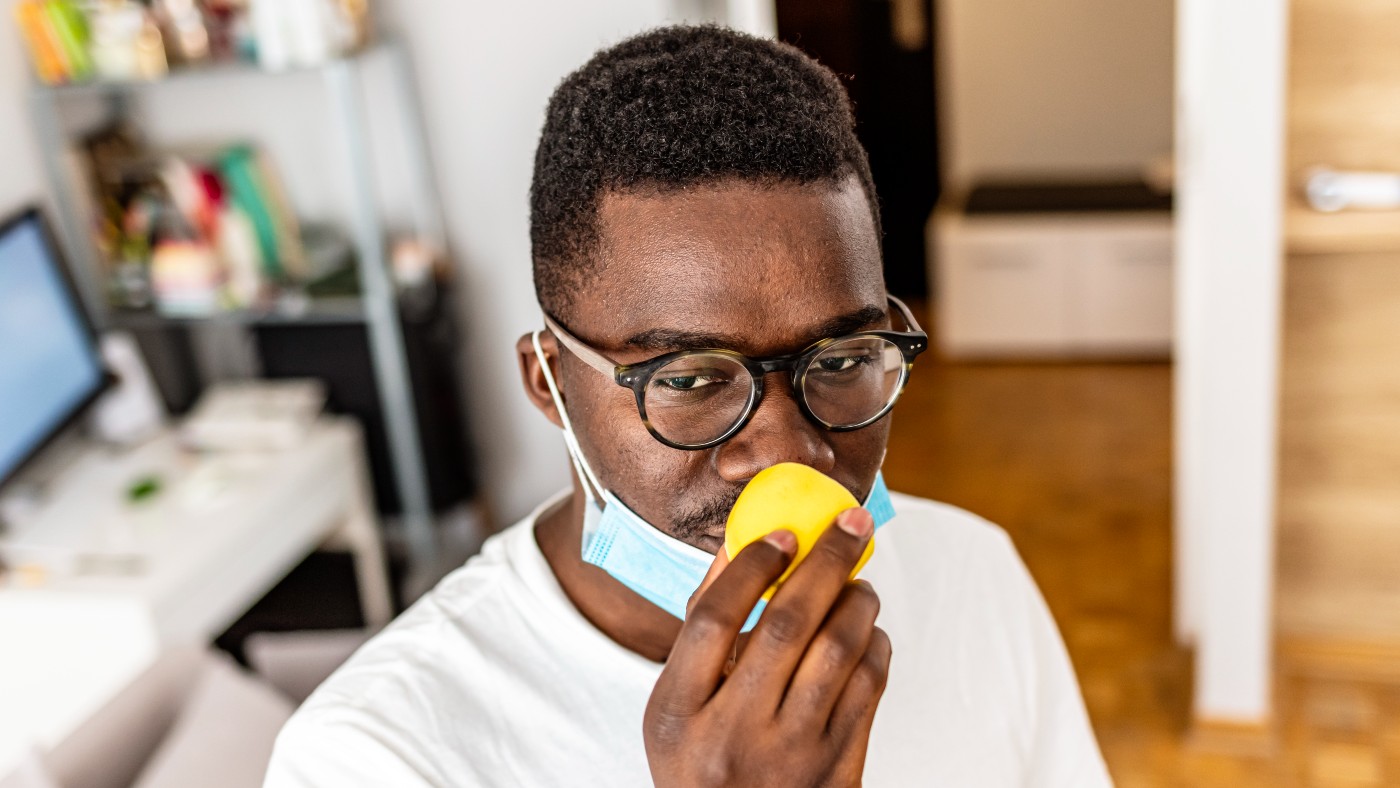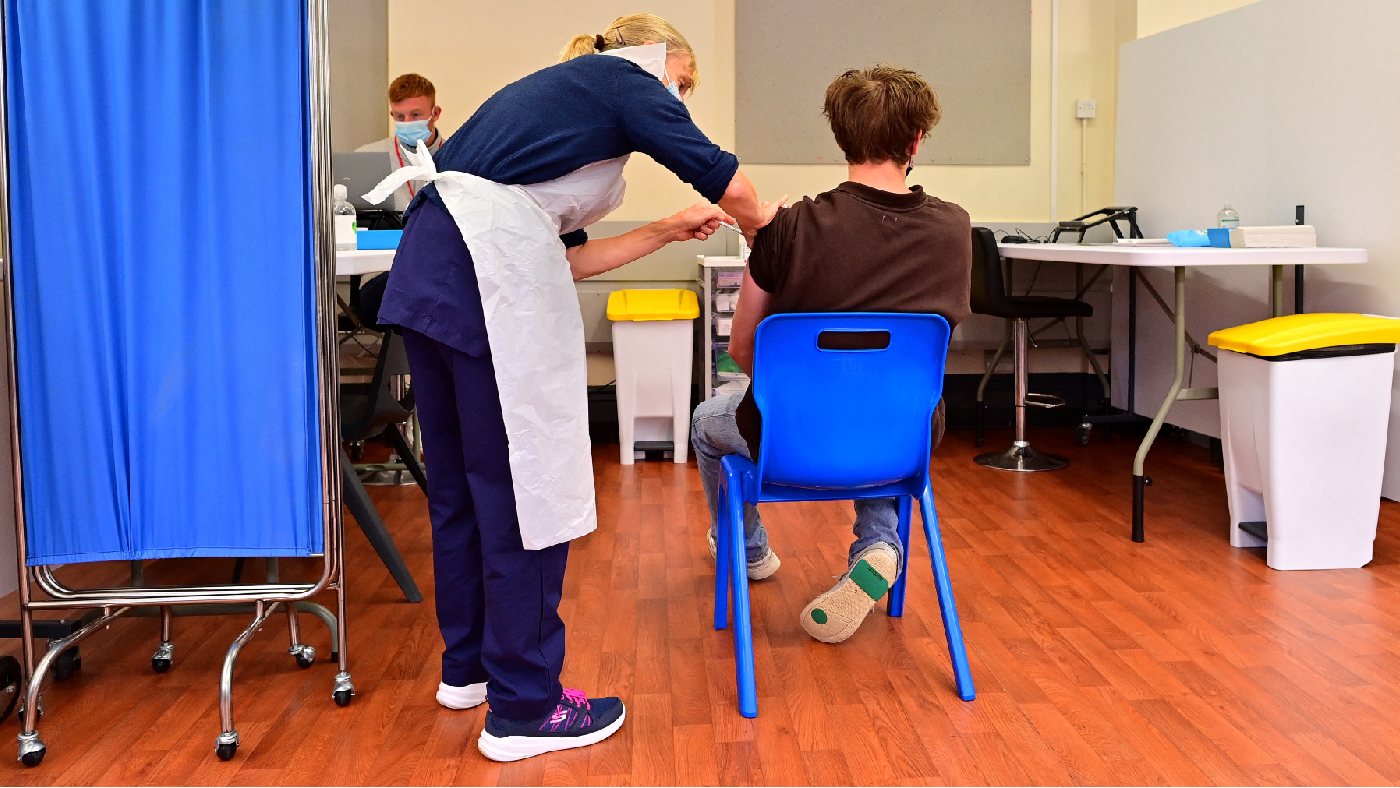Lateral flow tests: how accurate are they?
Research casts doubt on efficacy in detecting asymptomatic Covid cases

A free daily email with the biggest news stories of the day – and the best features from TheWeek.com
You are now subscribed
Your newsletter sign-up was successful
Everyone in England is being offered twice-weekly Covid-19 tests as part of Downing Street’s push to “reclaim a more normal way of life”.
Lateral flow test kits, which can provide results in just 30 minutes, are now available free through workplaces, at testing sites and via the post. The further expansion of testing will enable the authorities to “identify and control” new variants of coronavirus as well as limiting community transmission, in tandem with the vaccination campaign, according to the government.
But some scientists have expressed “scepticism” about the plan, warning of “the possibility of false negatives with lateral flow tests”, The Guardian reports, while new data suggests false positives are a problem too.
The Week
Escape your echo chamber. Get the facts behind the news, plus analysis from multiple perspectives.

Sign up for The Week's Free Newsletters
From our morning news briefing to a weekly Good News Newsletter, get the best of The Week delivered directly to your inbox.
From our morning news briefing to a weekly Good News Newsletter, get the best of The Week delivered directly to your inbox.
So how accurate are they?
Unveiling the mass testing programme, the government said that “one in three people with Covid-19 do not experience any symptoms and may be spreading the virus unwittingly. Rapid testing detects cases quickly, meaning positive cases can isolate immediately.”
However, a review of 64 studies from Europe and the US into the accuracy of lateral flow tests found that they “are better at identifying Covid-19 infection in people with symptoms than in those with none”, The BMJ reports.
And although the Cochrane Review found that “the diagnostic accuracy of different brands of tests varies widely”, the authors questioned the wisdom of rolling out a lateral flow testing scheme in the “absence of empirical evidence”, says the medical trade journal.
A free daily email with the biggest news stories of the day – and the best features from TheWeek.com
The research suggests that the Innova test used in the UK is 58% accurate at detecting Covid in symptomatic people and works best in the first week after symptoms appear.
The test also correctly identified a similar percentage of infections in people without symptoms. But the reviewers noted that “the number of samples from asymptomatic people was around ten times lower than from symptomatic people in the studies analysed, limiting the conclusions that could be drawn”, The BMJ adds.
Review lead author Jon Deeks, professor of biostatistics at the University of Birmingham, said that overall, the analysis indicates that “these tests work a lot less well in people who are asymptomatic than symptomatic. The government has not been clear on this.”
Limited data
Professor Deeks pointed to the limited data set from which scientists were able to draw conclusions on the Innova test, which was piloted in Birmingham and Liverpool.
“The only data we have is based on [these pilot] studies, where a total of 78 people had Covid-19, when 40 million tests have been given out,” he said
“I personally find it quite shocking that the government thinks this is an adequate evidence base on which to base such a large, expensive and quite invasive policy.”
What follow-up PCR tests reveal
New data out this week show that more than 26 million lateral flow results were recorded by Public Health England between 8 March and 4 April. Just 30,904 of these gave a positive result.
Around half of these positive cases were sent off to a laboratory for a follow-up PCR test, which can detect much lower levels of the virus in a sample. Most - 82% - showed that the lateral flow test had given a correct positive result, reports the BBC. However, 18% came back negative, “suggesting the individual concerned and their household had been self-isolating for no reason”, says the broadcaster.
Professor Deeks told the Daily Mail: “If you get a positive result it is essential that it is confirmed by a PCR test as soon as possible to check that you and your contacts do not isolate unnecessarily.”
Effectiveness at home
Scientists have also voiced concern about the accuracy of tests that are self-administered, as opposed to a health professional taking a swab.
Sian Taylor-Phillips, professor of population health at the University of Warwick, told Sky News: “We don’t know how well lateral flow tests work in terms of accuracy in people’s homes.
“So when people are doing the test unsupervised we don’t know if it will still be as effective. We know that swabbing technique is really important but we don’t know how well people can do that in their own homes.”
On a more hopeful note, the Liverpool pilot scheme, conducted by PHE England and Oxford University, suggests the Innova test is highly effective at detecting Covid in people with “high viral loads”. The study, which has not been peer reviewed, found that the test correctly identified more than 95% of these infections.
-
 Quentin Deranque: a student’s death energizes the French far right
Quentin Deranque: a student’s death energizes the French far rightIN THE SPOTLIGHT Reactions to the violent killing of an ultra-conservative activist offer a glimpse at the culture wars roiling France ahead of next year’s elections.
-
 Secured vs. unsecured loans: how do they differ and which is better?
Secured vs. unsecured loans: how do they differ and which is better?the explainer They are distinguished by the level of risk and the inclusion of collateral
-
 ‘States that set ambitious climate targets are already feeling the tension’
‘States that set ambitious climate targets are already feeling the tension’Instant Opinion Opinion, comment and editorials of the day
-
 The new Stratus Covid strain – and why it’s on the rise
The new Stratus Covid strain – and why it’s on the riseThe Explainer ‘No evidence’ new variant is more dangerous or that vaccines won’t work against it, say UK health experts
-
 Covid-19: what to know about UK's new Juno and Pirola variants
Covid-19: what to know about UK's new Juno and Pirola variantsin depth Rapidly spreading new JN.1 strain is 'yet another reminder that the pandemic is far from over'
-
 Vallance diaries: Boris Johnson 'bamboozled' by Covid science
Vallance diaries: Boris Johnson 'bamboozled' by Covid scienceSpeed Read Then PM struggled to get his head around key terms and stats, chief scientific advisor claims
-
 Good health news: seven surprising medical discoveries made in 2023
Good health news: seven surprising medical discoveries made in 2023In Depth A fingerprint test for cancer, a menopause patch and the shocking impacts of body odour are just a few of the developments made this year
-
 How serious a threat is new Omicron Covid variant XBB.1.5?
How serious a threat is new Omicron Covid variant XBB.1.5?feature The so-called Kraken strain can bind more tightly to ‘the doors the virus uses to enter our cells’
-
 Will new ‘bivalent booster’ head off a winter Covid wave?
Will new ‘bivalent booster’ head off a winter Covid wave?Today's Big Question The jab combines the original form of the Covid vaccine with a version tailored for Omicron
-
 Non-Covid excess deaths: why are they rising?
Non-Covid excess deaths: why are they rising?In the Spotlight Experts call for probe as mortality rates in England and Wales climb despite drop in coronavirus deaths
-
 Can North Korea control a major Covid outbreak?
Can North Korea control a major Covid outbreak?feature Notoriously secretive state ‘on verge of catastrophe’